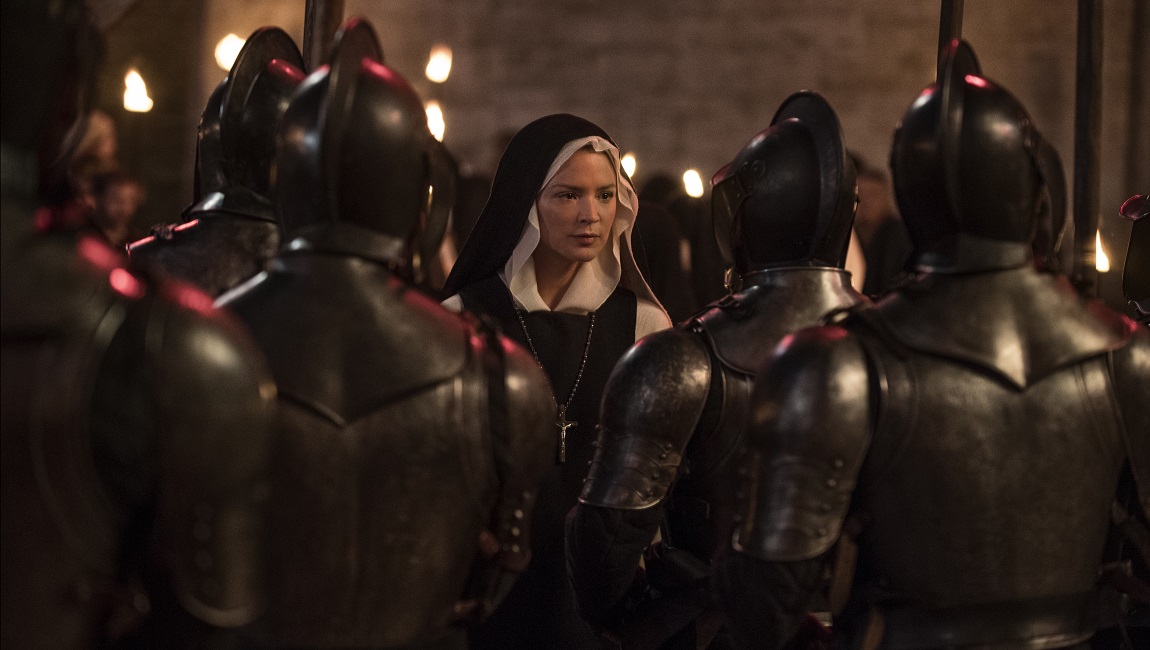Since the advent of an autonomous African cinema in the 1960s, Western audiences have grown accustomed to a realist, declarative style that served to describe histories that had been obscured by the legacy of colonialism. But this was as much a tendency on the part of Western tastemakers as it was the films themselves, and recent years have seen the rediscovery of major figures such as Sarah Maldoror and Med Hondo, whose work often operated in a more modernist, even fantastical vein. Angolan director Carlos Conceição is one of a number of young filmmakers who are embracing that more elliptical approach.
Such a counter-realist style befits a film like Tommy Guns, a horror-fantasia examining the final days of the Angolan war of independence against Portugal. The facts of colonial violence are now well documented, but what remains is a less factual, more psychological interrogation of the colonial legacy. Conceição seems less concerned with informing the viewer than in submerging them within an ever-shifting dreamscape, one that may correspond to the collective trauma of the colonial era itself.
The film beings with an extended prologue, in which we watch an Angolan soldier die, and the Portuguese nun who tries to save him (legendary actress Leonor Silveira) hunted down by angry militants. Conceição’s attention begins to light on a young girl, Tchissola (Ule Balde), who lived near the convent. As she flees the violence, she encounters a young Portuguese soldier (Silvio Vieira). Their interactions are tentative at first, and eventually they express a silent, physical tenderness for one another. But this apparent post-colonial rapprochement, the liberal fantasy of forgiveness and romantic triumph, is a red herring, to say the least.
This shattered promise might best be understood as Tommy Guns’s statement of purpose. The film is a changeling, constantly revising and reversing its apparent intentions. Although it bears many of the hallmarks of a war film, it also depicts the military mentality as a form of group pathology, and eventually a Kafkaesque double-bind. Conceição’s primary focus is on a wayward platoon of Portuguese soldiers, whose spiritual leader is Zé (João Arrais), a contemplative young man who intuits that something is wrong with their mission, although he cannot say exactly what. Despite this interest in the minds of the colonizers, Tommy Guns operates squarely from the Angolan perspective, going so far as to stage the achievement of independence as a return of the repressed, the revenge of actual zombies.
Much like another Locarno competition title, Woo Ming Jin’s Stone Turtle, Tommy Guns is a film of great ambition, but it does not completely succeed at bringing its various ideas satisfyingly together. Even as a film about being lost in the fog of war, it frequently loses the plot, as if Conceição were making it all up as he went along. Nevertheless, Tommy Guns demonstrates that Conceição is a bold new voice in Portuguese as well as Angolan cinema.
Published as part of Locarno Film Festival 2022 — Dispatch 1.







